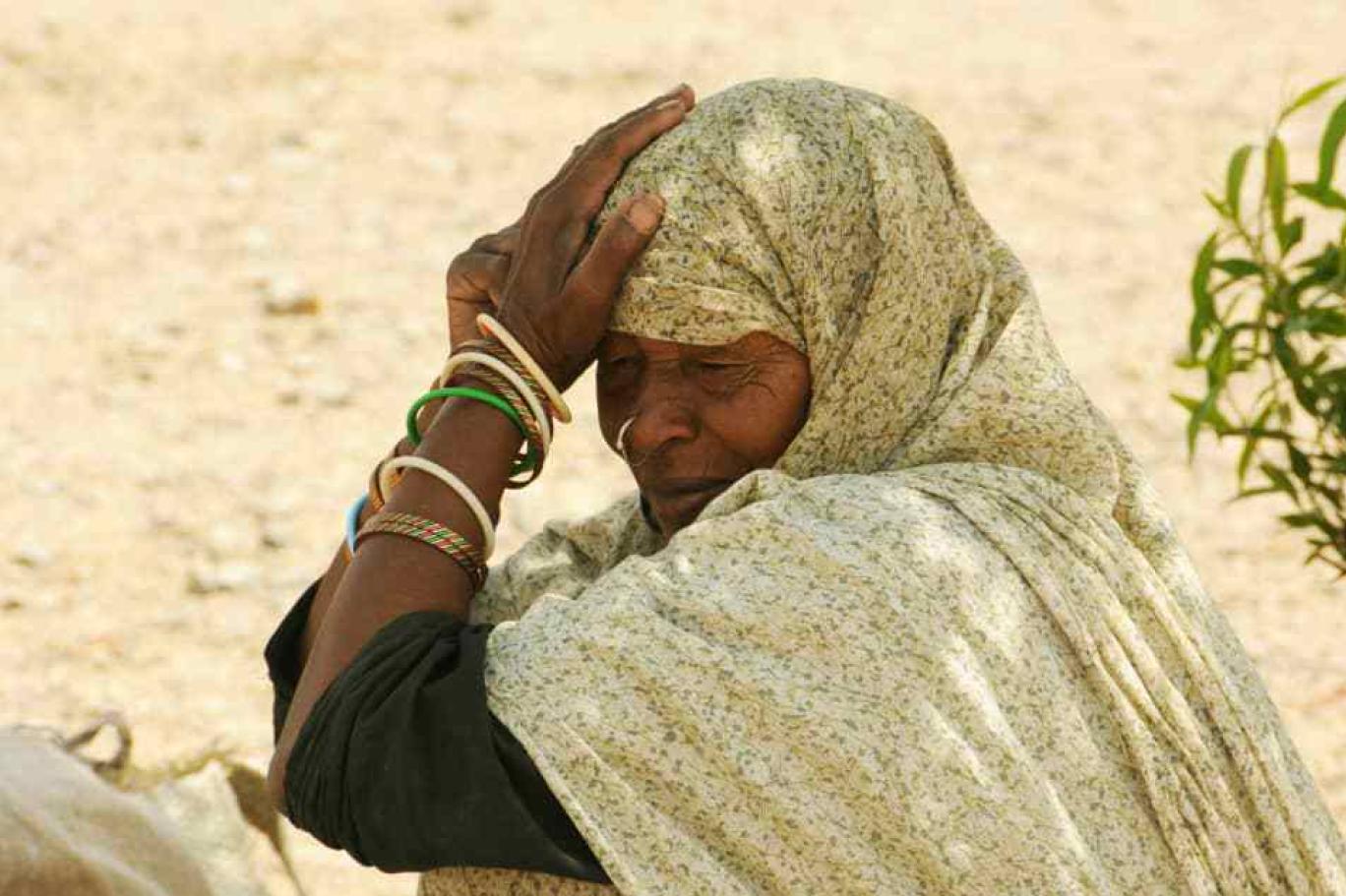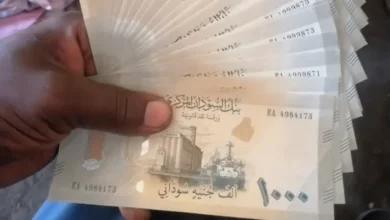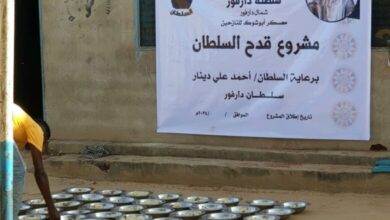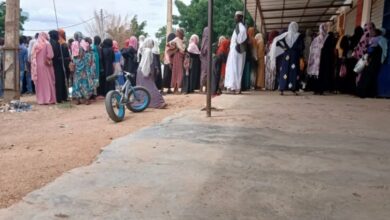
By: Munahaj Hamdi
El-Obeid, August 2, 2025 – Mashawir Platform
Mohamed Torkawi, 75, lives in a shelter center in the city of El-Obeid, North Kordofan State, where he arrived as a displaced person fleeing the fierce fighting between the Sudanese army and the Rapid Support Forces.
With a trembling body and frail bones worn down by age, Torkawi and thousands of elderly Sudanese endure a harsh and exhausting life that has followed them since the war began in April 2023. Their suffering is no different whether in relatively safe cities or in active conflict zones. Humanitarian conditions, livelihoods, and healthcare are severely lacking, with no special consideration from the government or aid organizations for their unique circumstances, rights, and dignity.
Since the outbreak of armed conflict, hundreds of elderly people have been displaced from Khartoum and other cities in search of safety. Some were forcibly uprooted due to bombardments in their neighborhoods, while others live in separation due to family displacement. A third group resides in refugee camps in neighboring African countries such as Chad, Uganda, and Ethiopia—under extremely difficult humanitarian conditions.
Neglect and Hardship
Mohamed Torkawi continues his depleted life in one of the shelters in El-Obeid, recounting his experience:
“We came here and left our homes behind. For a year and a half, we’ve endured incredibly harsh conditions, but we can no longer hold on if the war drags on. Neither the state nor humanitarian organizations—national or international—have considered our exceptional needs. We need places equipped with comfort, proper healthcare, and nutritious food.”
He added:
“The fighting has spared no one, even the elderly. They were forced to flee the inferno of war only to find themselves in the hell of camp life, lacking even the most basic necessities. Many suffer from chronic diseases, malnutrition, and psychological problems.”
Torkawi stressed the urgent need for intensified attention from all entities, alongside the provision of medical and humanitarian assistance and the establishment of dedicated elderly shelters that meet their specific needs to ensure their physical and mental well-being.
Illness and Lack of Care
Mariam Jar Al-Nabi shares a story no less tragic than that of others. She said:
“Three months after the war began, I fled with my family to Karari in Omdurman and have been staying in a house owned by a family currently living in Cairo. But we are struggling under severe conditions.”
She added:
“What we need most is respect for our rights and dignity, and an end to marginalization. War-life is nothing like the life we once had with our families. Sadly, the state doesn’t care for the elderly, nor does it provide even the minimum of basic needs. Humanitarian organizations seem to only focus on registering our data.”
Jar Al-Nabi described the health conditions of many elderly people as alarming:
“Some suffer from diabetes, others from heart conditions, while many have lost their eyesight. Most of us can’t afford medication or treatment.”
She continued:
“Many elderly people have died due to the unavailability of life-saving medications, the collapse of kidney dialysis centers, and the lack of healthcare facilities across Sudan.”
Neglect and a Crisis in Care
Social researcher Maysoun Al-Sharif noted:
“This demographic suffers from extreme neglect. Most of them face malnutrition, which leads to chronic diseases. Many require regular medical checkups and access to essential treatments.”
She added:
“In shelter camps, the elderly feel neglected—by the state, aid organizations, and even sometimes by their own families—making them vulnerable to various physical, psychological, and social problems.”
She continued:
“In reality, the elderly are the weakest and most vulnerable group. Most are already dealing with age-related ailments, and the horrors of war have only intensified their suffering.”
She called on the government and both national and international organizations to improve the conditions of elderly displaced persons and those trapped in the capital’s three cities—Khartoum, Omdurman, and Bahri. She also urged financially stable families in safe areas to host elderly individuals suffering from health and psychological problems.
Social Isolation
Mental health specialist Ihab Gamal explained:
“The elderly are highly affected by environmental factors such as heat and humidity, which require proper ventilation—something unavailable in most homes in Khartoum and its twin cities due to ongoing power outages. The same applies to those living in shelter camps.”
He emphasized the severe lack of healthcare, as many cities, towns, and shelter centers lack permanent clinics to monitor critical conditions, particularly with the collapse of the healthcare system.
Gamal warned:
“Social isolation under wartime conditions is the harshest burden on the elderly. It leads to mental deterioration, especially after the loss of friends and social roles, increasing feelings of loneliness and sorrow.”
He added:
“The elderly are no longer a priority in the eyes of those responsible for them, especially with the collapse of the healthcare sector. War has inflicted deep psychological wounds, and providing mental healthcare is now seen as a luxury.”
He concluded:
“We are deeply concerned about the harsh conditions the elderly face. Sudan is now grappling with multiple crises, including constant power cuts, water shortages, extreme heat, and the diseases brought by the rainy season.”
To help alleviate their suffering, Gamal recommended keeping the elderly mentally engaged and helping them avoid dwelling on traumatic memories of displacement and war. He also stressed the importance of early intervention and psychiatric care if their mental health begins to decline.
This article is published by the Sudanese Media Forum and its members, prepared by Mashawir Platform, as part of their effort to reflect how the war in Sudan is impacting civilians—particularly the growing hardship endured by the country’s elderly population.




